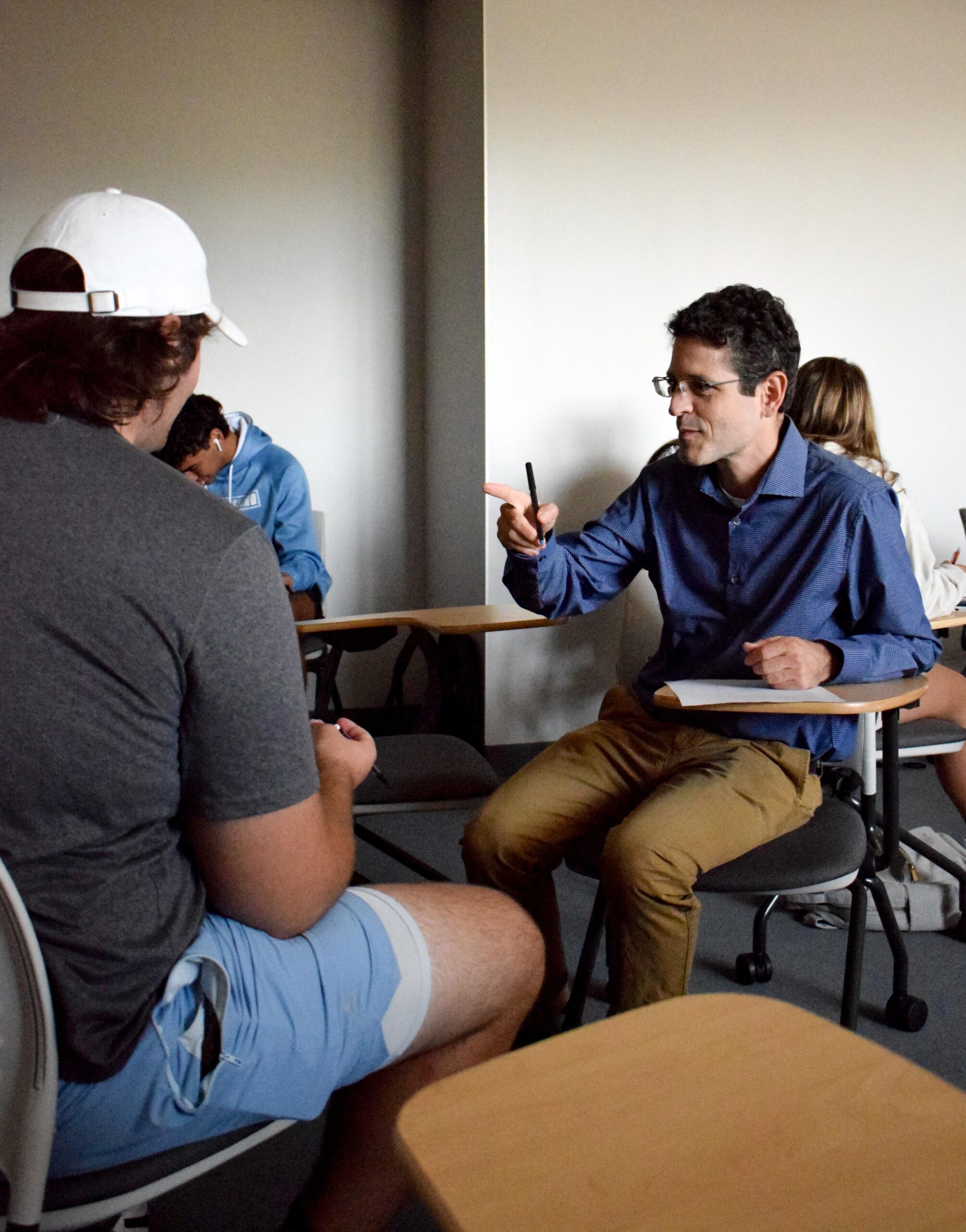A new URI101 pilot program was launched, making the existing course more in-depth and effective for students.
The URI101 course has been part of the first-year experience at the University of Rhode Island for 28 years. Throughout its time here, it has been an introductory course that teaches students about URI, introduces them to their major and provides students with a faculty member that they can come to if they need help. Since the times of COVID-19, however, this course has undergone significant changes in order to make sure students were receiving the right information and resources.
Kim Stack, the leader of the committee to change this course and a URI101 instructor, says that the URI101 curriculum has always adapted to students’ needs and has been continually evolving since its inception. This new pilot program is part of this evolution.
“It’s not that the curriculum necessarily changed,” Stack said. “It’s that we made it more robust for the instructors and gave them more resources to utilize in order to feel like they could create a sense of belonging in the class.”
The instructors of the course are provided with an in-depth sample syllabus that they are able to change as they see fit in order to make this course more personalized to the major. Some sections include: how to use URI technology and platforms such as Brightspace and Handshake, student involvement and studying resources provided by the Academic Enhancement Center.
The class is also personalized to students – there are different sections for each major and it is designed to help students find out more about themselves. Stack says that one of the students’ favorite topics is about curriculum sheets and how to understand them. This important skill allows students to understand more about what is required for their specific majors. The course also remains dedicated to diversity, through partnership with the Community, Equity and Diversity Office on campus. Topics such as social identity, power and privilege are focal points in the class.
This curriculum has evolved since 2020, but the pilot program has been in the works since the summer of 2022. Committee meetings were held throughout that time, and one of the members who helped to make this change happen was Cheryl Foster, a philosophy professor who has a long history of working with first-year students. Foster was one of the people who helped to develop a sample syllabus and a Brightspace site for the course, along with Kristine Bovy, the chair of the anthropology department. The instructors will have resources for students to reference on Brightspace, but during class, they focus on creating connections and asking questions, not overloading students with slideshows and information.
“We only have an hour,” Foster said. “Let’s make the most of being face-to-face.”
The new syllabus looks quite a bit different than it used to, containing topics like student involvement, how to have difficult conversations and how students can thrive. There is also a requirement for making an office-hours appointment with the instructor. This is so that students can get used to utilizing Starfish and talking with professors.
This helps the program move more toward, “having someone you can come to if you don’t know how to do something,”according to Foster,
In addition, posted on Brightspace are the key points of what was covered in class that day so the students know what the topic is, why they covered it and how they can apply this information to their own lives.
Associate Dean Brian Krueger and Assistant Dean Kamilah A’Vant are two people who have impacted this pilot program greatly, especially during the summer of 2022 when the idea was just beginning. A’Vant played a role in promoting diversity, equity and inclusion within the course and Krueger made sure that all of the academics were represented. Also on the committee were professors from different departments.
“We had at least one scientist, one humanist and one artist, all giving us feedback and contributing,” Foster said.
The team collected feedback through surveys, in order to get firsthand accounts of what worked, what did not, and how students felt about the course.
“This year, what we’re hearing is a lot of positivity in the class,” Stack said.
This new course will help pave the way for first-year students to succeed, understand their majors and feel supported at URI – from their first semester to graduation.

